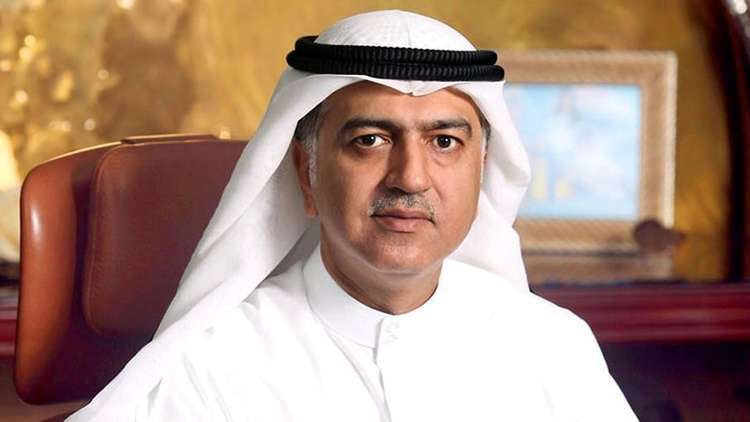- ASRY Awarded 2024 RoSPA Gold Medal in Health and Safety
- BP ponders shifting focus away from renewables, say sources
- QatarEnergy enters 10-year naphtha supply agreement with Japan’s ENEOS Corporation
- The International Energy Agency expects oil demand growth to slow in 2024
- The International Monetary Fund re-selects Kristalina Georgieva as its director
- Libya to target producing 1.4 million b/d by end 2024
- TotalEnergies launches the Marsa LNG project and deploys it multi-energy strategy in Oman
- H.E. Minister Al-Kaabi: Demand for oil and gas will continue for long; we have to be responsible, and Qatar is doing its part
- Egypt to stop exporting LNG starting from the beginning of May 2024
- QatarEnergy selects Nakilat to own and operate 25 conventional LNG vessels

Hashem Hashim appointed as CEO of Kuwait Petroleum Corporation

A decree was issued on December 18, 2018 appointing Hashim Hashim as Chief Executive Officer of KPC and Vice Chairman. The corporation is the executive arm of the state oil sector in Kuwait. The decree also appoints Khalid Saleh Buhamra, Sami Fahad Al Rasheed, Fadel Safar Ali Safar, Jamal Abdul Khaliq Al Nouri, and Mohammed Abdul Latif Mohammed Al Faris, as members of the Board of Directors.
Hashim has worked for over three decades in the Kuwaiti oil sector. During this period, he held several positions in the field of petroleum engineering and reservoirs in Kuwait, including positions as Development Supervisor in Umm Kadeer and Burgan fields, head of planning team, Development of Fields, Gas Development Manager, Deputy Managing Director of Southern and Eastern Kuwait, Chief Executive Officer of KOC, and then Chairman of Kuwait Petroleum Industries Company, (QIPIC).
According to some sources, one of the most important challenges that Hashem will face in his new work is the decrease in oil production and the inability of the Kuwait Oil Company to achieve the planned production capacity of crude oil and free gas and the delay in operating some of the company’s facilities, as well as the delay in the clean environmental fuel project, which costs the state huge financial losses as a result of this delay.
Hashem is the chief executive of KPC while tensions between Kuwait and Saudi Arabia over the shared oil fields in the neutral zone continue between the two countries. Three years ago, the neighboring countries stopped production of the jointly managed Khafji and Wafra fields in the Neutral Zone. They lost together around 500,000 bpd equivalents to 0.5 percent of the world’s oil supply (300,000 bpd from Khafji field and about 200,000 from Wafra field). The tension between the two countries began with Kuwait’s displeasure with the Saudi decision to extend the Chevron concession in the Wafra field until 2039 without consulting Kuwait. As for the Joint borders between Iraq and Kuwait, the Iraqi Oil Minister Thamir al-Ghadhban said on December 23, 2018 during the latest meeting of the Organization of Arab Petroleum Exporting Countries (OAPEC) held in Kuwait that Iraq and Kuwait have selected a consultant to study the oil areas on the border between the two countries, and that the production policy will be determined based on the study provided by the consultant.
On another level, Ali Hussein al-Kandari, director of production operations and gas projects in the Kuwait Oil Company, expects Kuwait’s production of light crude to increase to 250 thousand barrels per day in three years and to reach 300 thousand barrels per day by 2023. Al-Kandari said in a statement quoted by Kuwait News Agency (KUNA) that the country’s production of light crude is currently 180 thousand barrels per day, while the production of natural gas 0.5 billion cubic feet.










